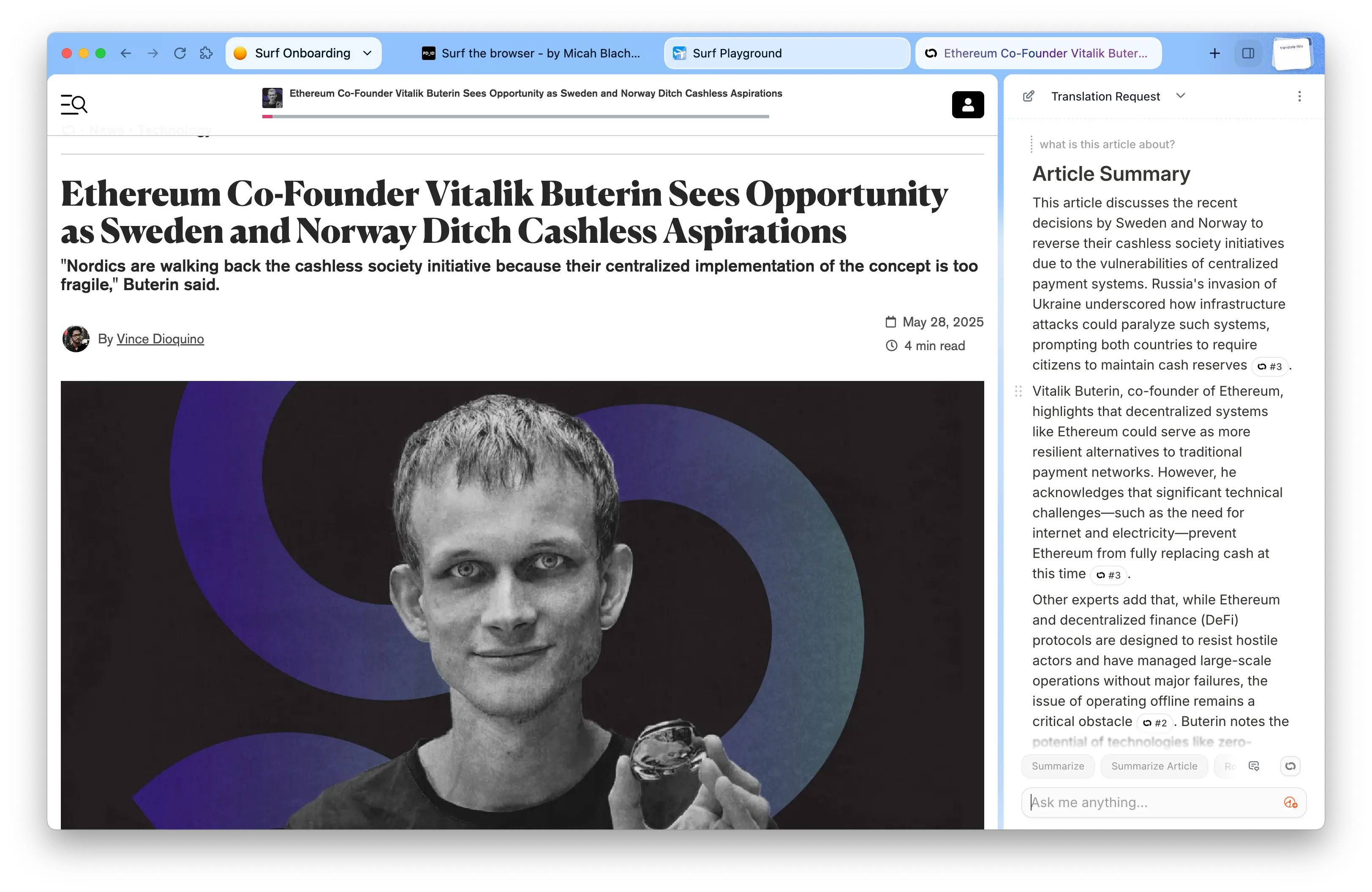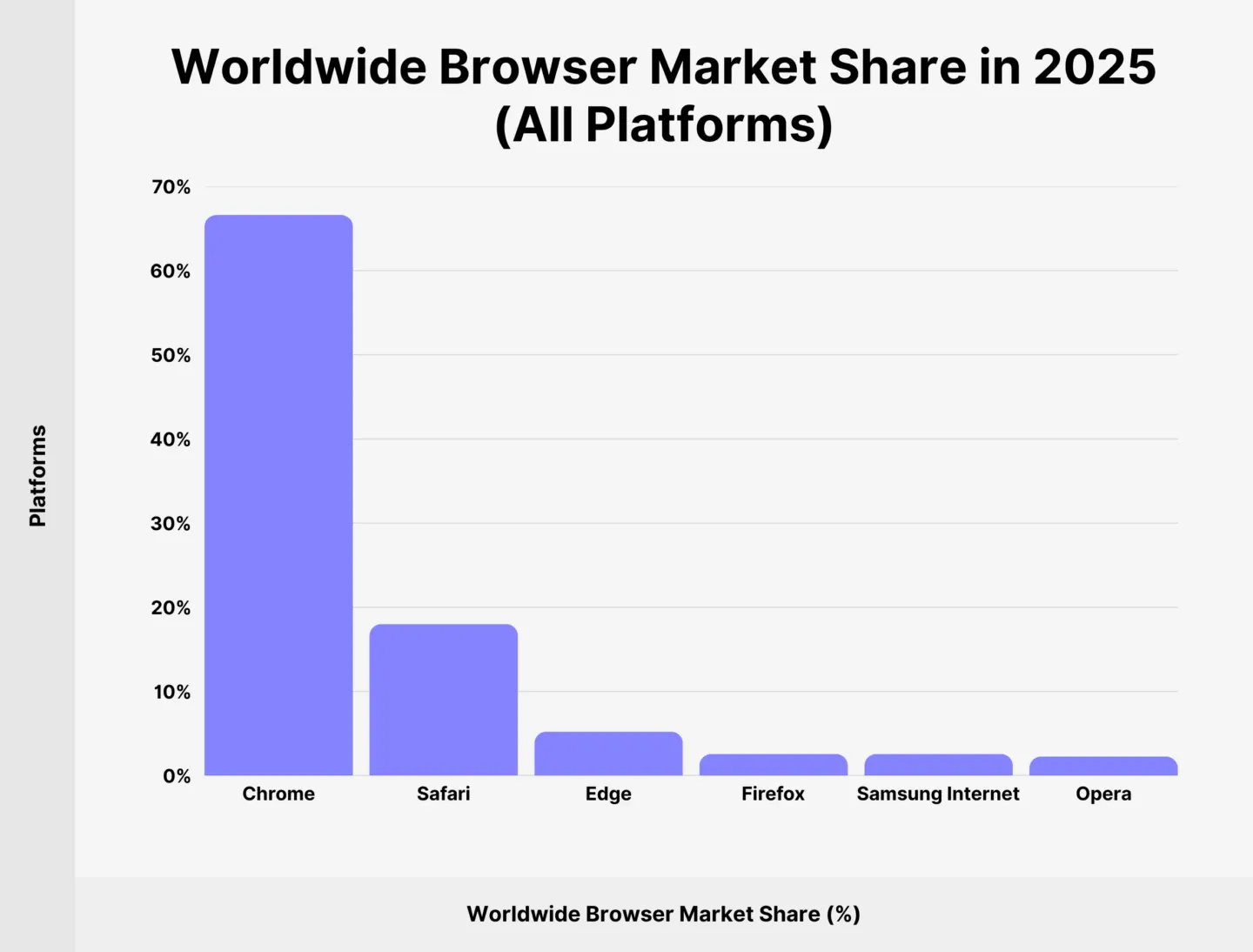Keep in mind when selecting an online browser meant choosing between Chrome or Firefox—or Web Explorer and Netscape, in the event you’re of a sure age? These have been less complicated instances. At present, a brand new breed of browsers powered by synthetic intelligence is making an attempt one thing loopy: making Chrome sweat.
Opera dropped Opera Neon in the present day, billing it as “a browser for the agentic internet.” If that feels like advertising and marketing fluff, then contemplate this: It might probably actually code a web site whilst you’re busy doom-scrolling Twitter.
Meet Opera Neon, a browser for the agentic internet
Opera Neon can browse with you or for you, take motion & enable you get issues achieved.
Our playground to redefine what a browser might be.
🧩 Invite solely. Enroll now: https://t.co/E2XYInZkYc pic.twitter.com/nMaxejPXGv
— Opera (@opera) Might 28, 2025
However Opera isn’t alone. Different firms are additionally attempting to redefine the best way folks browse the online—with AI on the epicenter of an rising and radically totally different web.
Right here’s a rundown of probably the most promising AI-first browsers.
Opera Neon: Pay for an AI browser that really ships code
Opera Neon, introduced in the present day with surprisingly little fanfare for one thing claiming to be the “world’s first AI agentic browser,” represents Opera’s boldest wager because it satisfied folks to put in a browser for its Web3 capabilities.
The technical structure behind Neon’s three-pillar method—Chat, Do, and Make—reveals refined engineering that goes properly past advertising and marketing buzzwords.
“Make” is about constructing totally practical internet purposes.
“Make takes complicated concepts from prompting to full-scale outcomes—content material, video games, and internet apps. As a result of huge concepts deserve greater than fast replies,” Opera stated in an official announcement. “Neon’s AI agent understands and interprets what you need, then makes it for you. Convey your concepts to life, and even run a number of cases within the cloud on the identical time.”
The whole course of occurs in cloud-based digital machines that proceed working even after you shut your browser—log again in hours later to search out your utility prepared for deployment.
“Do” showcases Opera’s understanding of real-world frustration.
Job automation is not new, however Neon’s implementation needs to take issues additional. The browser maintains what Opera calls “interplay maps” of main web sites—not simply static doc object mannequin or DOM constructions, however a dynamic understanding of how websites really work. For instance, if you have to guide a flight or discover the most cost effective film tickets in your metropolis, Neon will be capable of know every part you have to do the job from scratch.
And “Chat” needs to vary the best way folks work together with search engines like google and internet browsers.
As an alternative of specializing in key phrases, pure language might be one of the best ways to speak to our browser. Begin a question in English about Japanese eating places, swap to Japanese mid-conversation, and Neon maintains context whereas adjusting its cultural references and search parameters. Ask it to summarize an article or clarify one thing you didn’t perceive, and the browser will be capable of work together with you and do what you requested it to.
The premium-only mannequin will work on a subscription foundation. That sucks, but in addition is sensible whenever you perceive what’s taking place behind the scenes: Each Make operation spins up precise cloud computing assets, Do operations eat API calls to official companies, and Chat queries hit enterprise-grade language fashions.
Dia: Arc’s killer and successor
The Browser Firm grew to become well-known within the tech area for its Arc browser, beloved by geeks and builders, launched in 2022. That’s over now. This week, the corporate introduced it’s saying goodbye to Arc to focus full time on its until-then aspect venture: an AI-powered browser that goes past being simply one other Chromium fork with AI plugins.
The headline characteristic, “chatting with tabs,” undersells the technical sophistication. Dia employs what it calls context-aware tab intelligence, utilizing a mix of context evaluation, content material extraction, and real-time web page monitoring to keep up residing representations of every tab’s content material.
So, Dia places AI to work to radically simplify your shopping expertise.
“I might take the tab with ‘notes on the state of Virginia,’ the tab with ‘The Federalist Papers,’ and a tab with my paper and interact with the sources concurrently. After Dia offers me the output, I can ask follow-up questions to ensure I perceive and that the data it discovered is correct (by no means totally belief AI’s means to provide you what you need!),” Reddit person Fredninja wrote whereas explaining why Dia is so totally different from different browsers. “May I paste these into AI? Sure. However I’ve to maintain switching between tabs.”
With Dia, every tab runs a light-weight AI agent that maintains a semantic understanding of the web page content material. These brokers talk by way of a central orchestrator that manages context and prevents the reminiscence bloat that killed many formidable browser initiatives.
The pure language command system goes past easy voice instructions. Customers can difficulty complicated, multi-step directions and Dia will perceive. For instance, asking a mannequin to e-mail a abstract of the 5 most vital dates in a marketing strategy on a URL will immediate the mannequin to investigate the positioning, perceive its info, determine what the person requires, and execute the ultimate activity of composing and sending the e-mail.
You may register for Dia’s ready checklist right here: https://www.diabrowser.com/
Surf: The ‘alpha’ nonetheless discovering itself
Deta’s Surf browser, at present in alpha, guarantees to prepare your digital life with AI-powered “contexts”—principally folders on steroids.
The browser employs machine studying algorithms to investigate your shopping patterns and routinely recommend contextual folders for organizing content material. Whenever you’re researching complicated themes, bouncing between ArXiv papers and YouTube explainers, Surf acknowledges the thematic connections and proposes grouping them right into a devoted context.
So ideally, with out doing so much in your aspect, Surf would be capable of manage your dozens of tabs into teams that make sense, fixing the issue of dropping monitor of vital URLs after opening dozens of hyperlinks.

Underneath the hood, Surf integrates a number of compelling options. The OCR functionality for PDFs can parse complicated educational papers, extract key ideas, and even recommend associated contexts based mostly on the content material. The built-in chatbot goes past easy webpage manipulation to with the ability to synthesize info throughout a number of tabs inside a context (which matches past the capabilities of your typical AI chatbots and even brokers), reply questions in regards to the collective content material, and even generate summaries that draw from varied sources you’ve got collected.
You may obtain and take a look at Surf right here: https://deta.surf/
Comet: Perplexity’s moonshot
Perplexity AI’s Comet browser is all about “agentic search”—basically utilizing AI to make your browser work as an assistant as a substitute of an info aggregator.
BREAKING 🚨: Perplexity began rolling out its agentic internet browser – Comet to early testers.
Vibe shopping is sort of right here 👀 https://t.co/Ahx9Hs9er6 pic.twitter.com/UmFARUN6yx
— TestingCatalog Information 🗞 (@testingcatalog) Might 20, 2025
This browser will not be but publicly out there, however Perplexity has been hyping its generative AI-powered capabilities for months. Fairly than merely forwarding queries to search engines like google, Comet employs a multi-stage reasoning pipeline. Whenever you ask a posh query like “What are the regulatory implications of the EU’s AI Act for American startups?”, the browser does not simply search—it decomposes the question, identifies required data domains, searches a number of sources in parallel, synthesizes findings, and presents a coherent reply with citations.
The browser must also be capable of perceive temporal references, assembly contexts, and doc relationships—principally aiming to do what Google itself has struggled to ship: really clever private info retrieval.
The shopping historical past integration raises apparent privateness issues, particularly with Perplexity’s flirtations with adverts tailor-made to your non-public info. Comet maintains a neighborhood data graph of your shopping patterns, permitting it to grasp your experience stage and pursuits. Ask about machine studying, and it tailors responses based mostly on whether or not you’ve got been studying newbie tutorials or diving into papers on transformer architectures. The system processes every part regionally utilizing environment friendly vector embeds, addressing some privateness issues whereas sustaining responsiveness.
You may be part of the ready checklist right here: https://www.perplexity.ai/comet
Legacy guidelines: Chrome remains to be the king
Whereas these AI upstarts duke it out for desk scraps, Chrome sits fairly with its 66% market share, sometimes tossing in options like Gemini integration to point out it is paying consideration. Microsoft Edge integrated Copilot, Safari’s doing… Safari issues, and Firefox continues to exist (bless its open-source coronary heart).
The cruel actuality? In response to current information, these new AI browsers do not even register on market share reviews from 2025. They’re statistical rounding errors in Chrome’s empire with out really threatening the enterprise mannequin.

But there’s purpose for cautious optimism. Every browser targets particular ache factors—Arc (RIP) for energy customers, Opera Neon for automation lovers, Surf for digital organizers, Comet for researchers, Dia for simplicity seekers, and so forth. If even one captures 5% market share, it might pressure the incumbents to innovate past area of interest AI options.
Edited by Andrew Hayward








